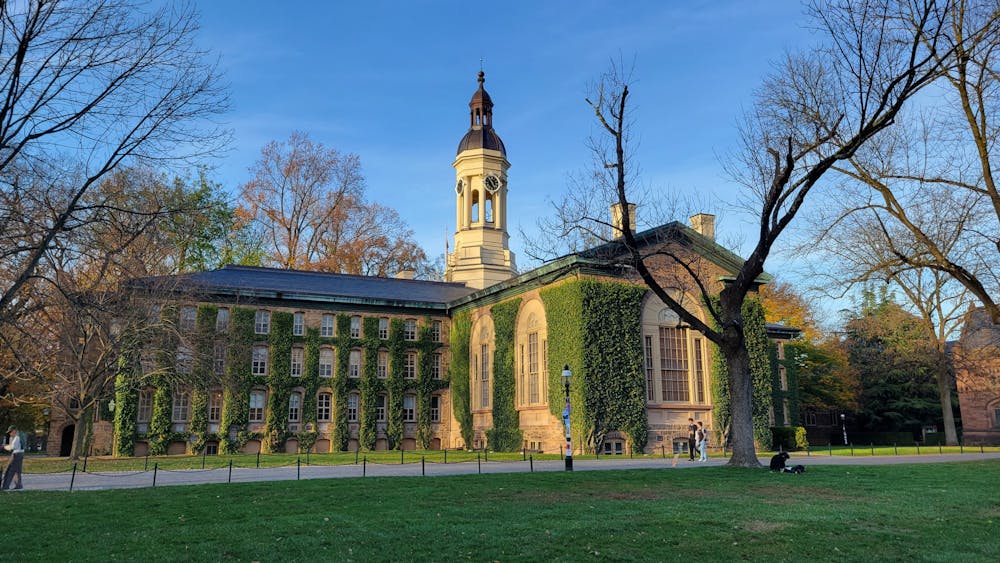Voting for the Class of 2023 Young Alumni Trustee (YAT) came to an end on Wednesday, and the new student representative will be announced on May 26. But what does a YAT do?
Given the influence YATs — as a part of the body that, among other things, controls the finances of the University — have on major decisions affecting the University, current and past students have criticized their election process in articles published by The Daily Princetonian. Students have cited a lack of transparency, absence of substantive information about YAT candidates, and prohibition of candidate campaigns. Earlier this year, one YAT candidate, Ben Gelman ’23, ran a campaign specifically calling out the process.
In a statement to The Daily Princetonian, Gelman described the YAT election as a “a popularity contest.”
“The whole process is designed to give the impression that students and young alumni actually have a voice, when in reality the Board would never allow such a thing,” Gelman added.
But two former YATs, Brian Reilly ’14 and Kanwal Matharu ’13, both spoke positively of their time on the board, emphasizing that they had an impact on decisions. Reilly felt that the role effectively served the purpose of representing students on the Board and that the election process had advantages.
Each year, one graduating senior is selected to serve a four-year term as a YAT, a position established by the University in 1971. According to the Princeton Alumni website, the four YATs on Princeton’s Board of Trustees have “the same rights, powers, and duties as all other trustees” and “are able to provide a perspective on the issues before the Board informed by their experience as students and their knowledge of the needs, concerns, and interests of the current generation of Princeton undergraduates.”
In a phone interview with the ‘Prince,’ Reilly said that he felt the YAT position was successful in achieving its goal of representing current students’ perspectives on the Board.
“I always felt like our opinions were valued and that we were welcome to discuss ideas as any other member of the Board would be. And, in fact, we were encouraged to, and often the YAT opinions were solicited and given certain weight because of our unique perspective,” Reilly said.

Matharu told the ‘Prince’ that he ran for the position specifically because he “had the on-the-ground experience of what it was like and what a large swath of the personal Princeton experience is like.”
“There were ways that I felt my Princeton experience could have been better,“ Mathuru said, “There were ways that I felt Princeton could be truer to her lofty goals and could serve her students better.”
Matharu spoke to the impact that YATs are able to make on the board, saying, “the efficacy of the YAT is determined by every single person.”
“I think some YATs put in a ton of effort and listened really well and were able to communicate really well in a way that was heard by other members of the institution and, of course, other YATs, just like any other Trustee, were less effective and that varies for a myriad of reasons” he said.

Matharu also said that he felt that he and other YATs were treated with respect compared to any other member of the Board.
The Board meets five times a year. At each meeting, trustees spend three days on campus. Mathuru felt that most of his role, however, was getting more of a sense of the University between meetings: on a daily basis, he would try “to keep in touch with as many Princeton students as possible, reading all the [Daily Princetonian] articles [he] could get [his] hands on, seeing what the general landscape across elite, liberal arts schools [was].” Matharu also said that he spent time building relationships with other trustees and University administrators to understand their perspectives and decision-making.
Matharu described the job of the board as helping “steer the direction of the ship.”
“You are not supposed to be in the weeds making day-to-day decisions, which is really hard when you’ve just come from living the day to day,” he said.
One task that Matharu mentioned was participating in the campus planning and strategic framework development at the beginning of President Eisgruber ’83’s term in 2013.
During his time on the Board, Reilly served on committees for student life, health, and athletics; alumni affairs; and buildings and grounds. Within committee meetings, Reilly said that “everyone gets to ask questions or share thoughts, so it’s very collaborative.”
“You certainly have that kind of impact or influence,” he added, explaining that, “the administrators have to answer your questions and we’re allowed to ask hard questions,” and “I felt that I did move the needle on certain issues by asking hard questions.”
Reilly discussed the election process for YAT, the rules for which prohibit campaigning.
Former University vice president for public affairs Robert Durkee wrote in the ‘Prince’ in 2006 that this was to ensure that every “trustee comes to each issue with an open mind, the ability to consider all evidence and an overarching commitment to arrive at the best decision for the University as a whole, not as an advocate for a particular constituency or point of view.”
However, Reilly said that part of what drew him to the YAT position was that “it didn’t involve a lot of campaigning and self promotion.”
Although he acknowledged that students criticizing the election process may have good points, Reilly said that “I just thought it was kind of a cool way to just say, ‘Hey, I love this community and want to serve it and if you know me and agree that I could do a good job, then all you gotta do is click here.’”
“Princeton felt small enough that you did have good information on the candidates. At least for the primary election, it was just limited to the senior class, and I legitimately felt like enough of us knew enough of us —that there was enough information out there on which to base a judgment,” Reilly told the ‘Prince.’
Debate about the role of the YAT continues. To Gelman, the problem is rooted in the election. He felt the YAT election process, without campaigning, “allows the University to filter out anyone who would challenge how the Board currently operates.”
“At the end of the day, Princeton, as it currently functions, is a hedge fund with a University attached to it, and the Board is not going to allow for a YAT that believes it should or could be something else,” he said.
Anna Cornelissen is a news contributor for the ‘Prince.’
Please send any corrections to corrections[at]dailyprincetonian.com.








